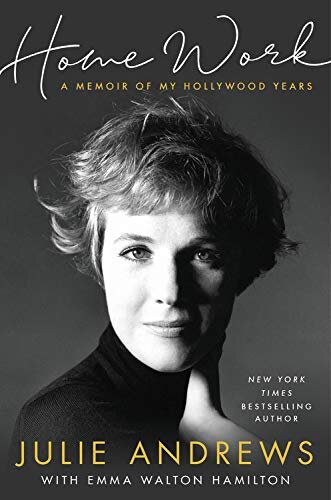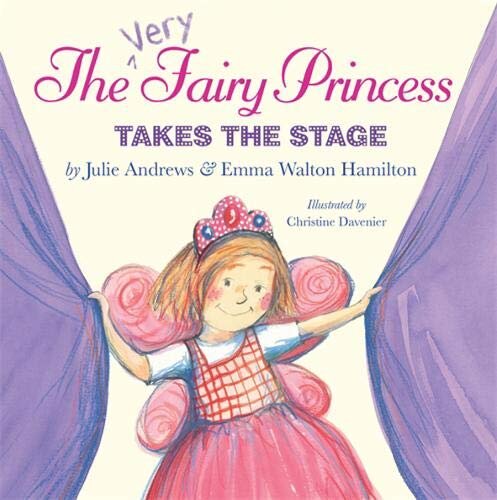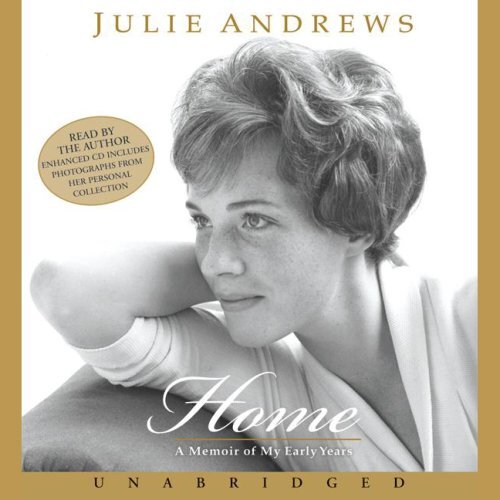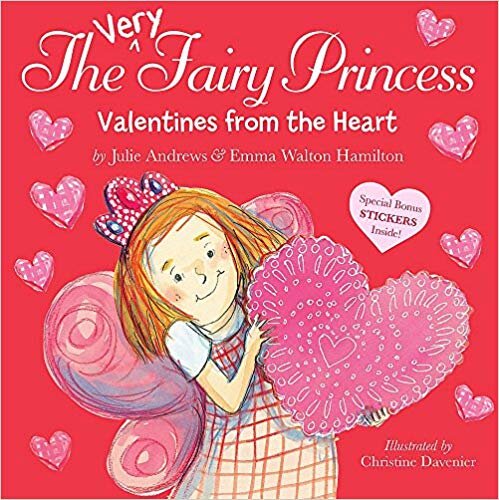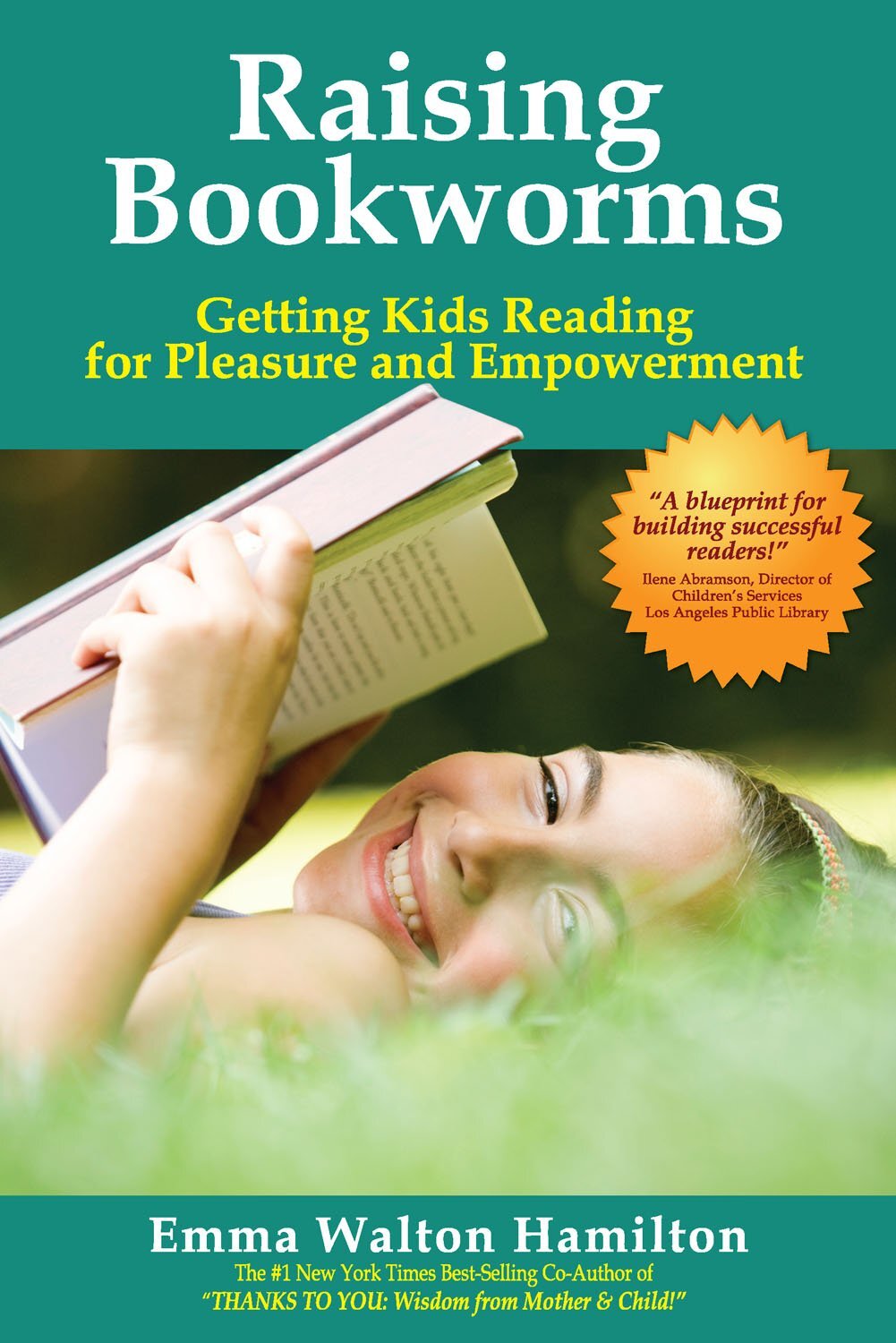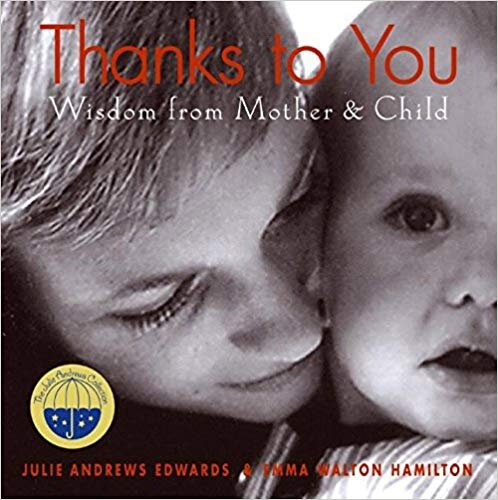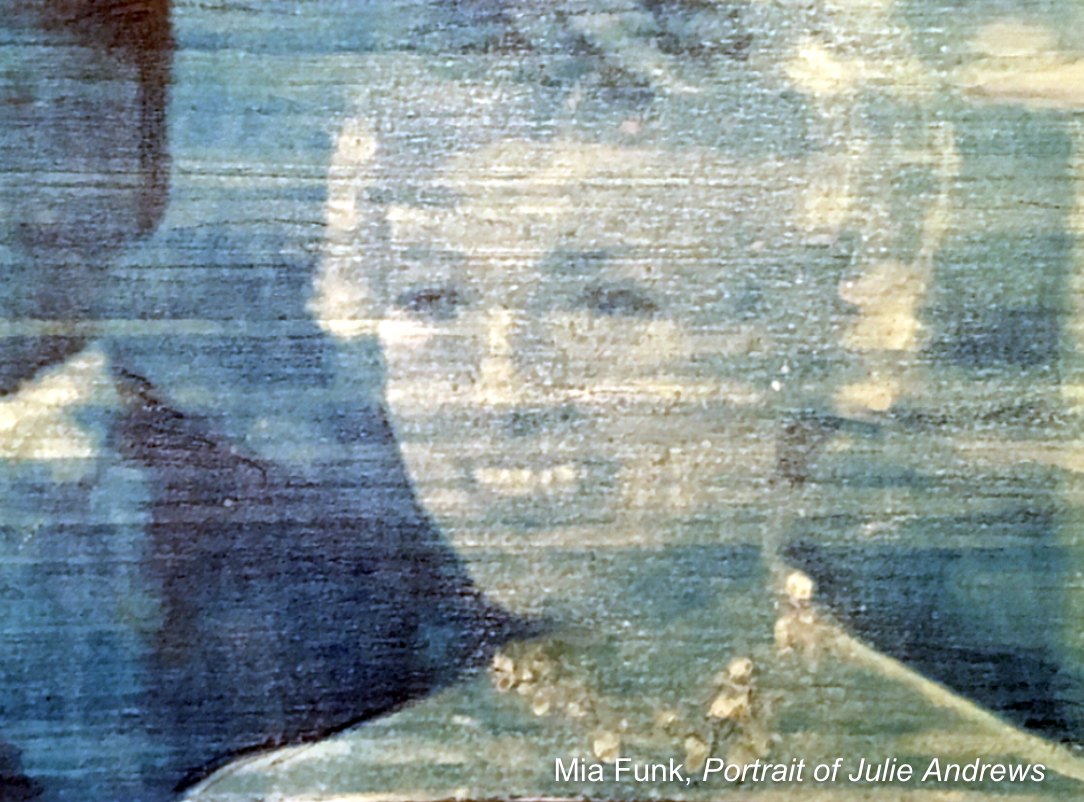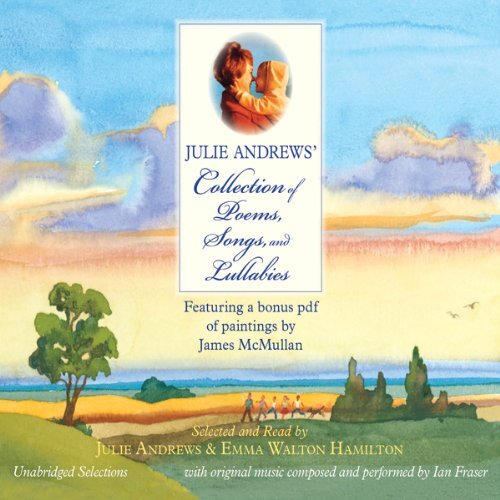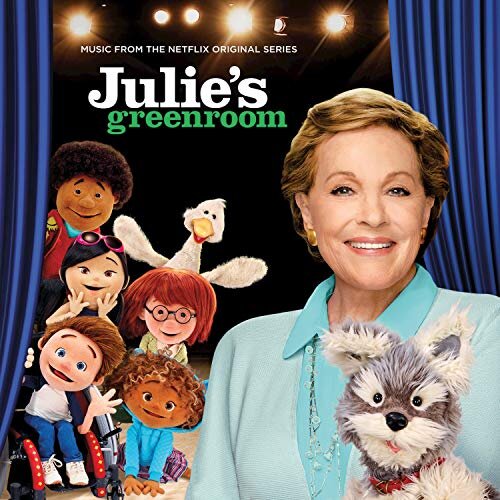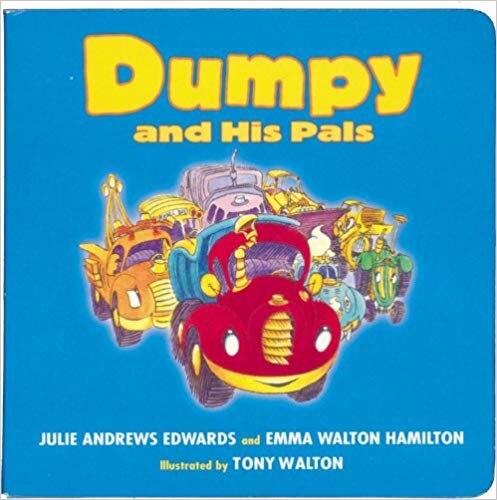EMMA WALTON HAMILTON is a best-selling children’s book author, editor, producer, and arts educator. She has co-authored over thirty children’s books with her mother, Julie Andrews, seven of which have been on the New York Times best-seller list, including The Very Fairy Princess series (#1 NY Times Bestseller), Julie Andrews’ Collection Of Poems, Songs And Lullabies; Julie Andrews’ Treasury: Poems and Songs to Celebrate the Seasons; the Dumpy The Dump Truck series; Simeon’s Gift; The Great American Mousical and THANKS TO YOU – Wisdom From Mother And Child (#1 New York Times Bestseller). She is the co-author of Home Work: A Memoir of My Hollywood Years She She serves as the Editorial Director for The Julie Andrews Collection publishing program, dedicated to quality books for young readers that nurture the imagination and celebrate a sense of wonder.
THE CREATIVE PROCESS
You and your mother Julie Andrews have been huge advocates for the arts and art education for so long. And there is a beautiful line by Katherine Anne Porter that I’ve heard you say about the arts telling us who we are…
EMMA WALTON HAMILTON
Katherine Anne Porter, essentially what she says is that the arts are what we find when the rubble is cleared away. In other words, they are the sum and substance of our lives, and we can go through wars and changes and all kinds of challenges in the world, but in the end, the arts tell us who we are and they are what remain no matter what. And when we look back and understand other civilizations that went before us, and when we think ahead to how people will view us in future civilizations, it will be our art and the arts that inform that story and tell people who we are and who we were, just as they do now from history.
THE CREATIVE PROCESS
Tell us about the origins of The Very Fairy Princess series and some of your other books for young children.
WALTON HAMILTON
The Very Fairy Princess series was very much inspired by my daughter. Growing up my daughter was, she had some physical challenges, but she was completely confident in her beauty, in her authenticity of personality and in herself. And she would only ever wear pink and purple and dresses. She was a different character every day, and she would, you know...one day a princess, another day a fairy.
And she became the inspiration for us for this character in our series, The Very Fairy Princess, which we really wanted to write a series, having written this Dump Truck series, which was very boy-centric. We wanted to write something that was empowering for girls and not just pretty princesses, but girls celebrating their individuality and their authenticity even in the face of challenges. And that's really the heart behind that series.
THE CREATIVE PROCESS
What was it like co-authoring the memoir Home Work with your mother? You also edited her previous memoir Home. What did you learn about her through this process?
WALTON HAMILTON
The process of sort of peeling away the layers of the emotional onion, so to speak, and telling a life story really does give you a window into someone's soul and someone's life journey. And for me, it's a very moving experience to see, how she navigated these periods in her life and these opportunities and these challenges. And, obviously, she was enormously fortunate, and she had tremendous success very early on.
But she also dealt with tremendous challenges. She grew up during the Second World War, and she had very little education because she was both taken out of school because of the war and also because she was working from the age of twelve onwards to help her family. And as a result, there have been lots of challenges along the way in her life, and I think what I've come to appreciate most working with her is her resilience. How she has managed to maintain this incredible optimism, even in later life, dealing with such challenges as losing her voice. You know, she's reinvented herself time and time again. And that's a real source of inspiration and that privilege and an honor to help bring that story to life.
I mean, I find it fascinating because in the first book that we did together, we collaborated on, I wasn't born at the time of those stories. And so that begins with my birth. So, of course, you know, I was really just interpreting her experiences and her stories. But this book begins when I'm an infant. And over the course of three decades, of course, I'm there experiencing everything with her. And it's fascinating now to me too, although I'm familiar, obviously, with all the events that happened.
You know, my perspective when I was a child was that she was an adult, and she absolutely was in control and knew what she was doing and making conscious decisions and choices and so forth. And what I, of course, know now is that she was a young woman who often felt confused or frightened or unprepared or, you know, any of the things that we all feel in our journeys to adulthood.
And it's very interesting to suddenly see your parents as vulnerable human beings on a life journey just as we are.
THE CREATIVE PROCESS
As someone has founded a theater company and who has also done so much to celebrate the performing arts and introduce young people to acting, what for you is the importance of theater and live performance?
WALTON HAMILTON
There's two things, I think, that are really critically important that make theatre so valuable. And one is that it demands that you, as the audience, engage with your imagination. So when watching a film or when you're watching a television show, that has been shot in real places and you're basically just sitting back and it's being presented to you, and you get lost in the story hopefully and in the imagery. But it's very realistic, and you don't have to do much except receive.
THE CREATIVE PROCESS
Right, it's complete.
WALTON HAMILTON
In a theater, you have to suspend your disbelief. You have to go into a theater and say, I'm willing to believe for the next two hours, that this is not a theater and these people are not actors, but that's not a set. That's a real place. And this is something I'm going to imagine what's on the fourth wall between the set and the audience, you know? And I'm going to engage with my imagination and participate in this kind of wonderful suspension of disbelief to take a journey, a creative journey. And that is an experience that is really unique to theater.
THE CREATIVE PROCESS
Yeah.
WALTON HAMILTON
And in the end, what it does is by sharing that experience with the other audience members around you at that time. It creates a kind of communion experience. And just by way of example, at Bay Street Theater, we were presenting a new comedy starring Alec Baldwin, actually, but it was a brand new comedy that no one had ever seen before.
And it was due to open the first preview on September 12th, which was the day after 9/11 when it actually took place. And we had a real dilemma. We didn't know whether, first of all, we didn't know if it was disrespectful to continue to do this, to be performing this sort of seemingly lighthearted comedy in the face of this tremendous national tragedy.
THE CREATIVE PROCESS
Right.
WALTON HAMILTON
And then we also didn't know if anybody would come. You know, people were so completely glued to the news and to their televisions. And, you know, it was just an astonishing moment. And in the end, we made the decision that not to go forward with the production was in a sense to surrender and to let them win, so to speak. And so we decided to proceed. And the theater was packed, packed to the rafters that night.
And after the performance, no one wanted to leave the building. They lingered in the lobby, and they wanted to commune and talk and continue laughing.
THE CREATIVE PROCESS
It was a refuge.
WALTON HAMILTON
Yeah, it was a refuge, and it was an escape, and it was an opportunity to commune with one another.
THE CREATIVE PROCESS
Right, they felt so disconnected.
WALTON HAMILTON
That's right.
THE CREATIVE PROCESS
What can we do to better encourage or include creativity and the arts in our education system? I wonder.
WALTON HAMILTON
Well, this is a great challenge, of course, because lately, in recent years, particularly in America, the arts are the first things to go on the cutting block with our focus on STEM in recent years. You know, the arts have really taken a hit, and I'm beginning to see that shifting now, thankfully, STEM seems to be turning towards STEAM now.
THE CREATIVE PROCESS
Yeah, exactly.
WALTON HAMILTON
And we're definitely seeing that coming back. But depending on certain administrations and government controls and things like that, the arts get either more or less support and exposure in the education system. I think the important thing is, if for example, if you don't have a strong arts program in the school where you attend or where your children go, there are ways to advocate. And there are ways to bring the arts into the school that don't necessarily have to be created and managed by the school. So, you can advocate. There's a wonderful arts advocacy organization here called Americans for the Arts, and they provide a phenomenal toolkit for advocacy where you can go online and they'll say, you know, "Here are the questions to ask your principal or your superintendent", and "here are the programs that you can suggest", and "here are the steps you can take." And it's in everything from bringing a visiting artist in to speak to the kids to taking the kids out on a field trip to someplace where they can experience the arts to canvassing the parent population to see if there's anybody within the school community who can come in and offer a program or provide something. You know, it doesn't have to be all or nothing.
It doesn't have to be, "Well, my school doesn't have an arts program, so I'm just out of luck." You know, if we as parents and as students advocate for other ways to bring the arts into our program.
The conversation has been edited for clarity and concision. You can hear the full interview on this page and on Apple podcasts. This interview was conducted by Mia Funk with the participation of collaborating universities and students. Associate Interviews Producer on this podcast was Dano Nissen. Assignment Editor was Sorella Lark. Digital Media Coordinator is Yu Young Lee. “Winter Time” was composed by Nikolas Anadolis and performed by the Athenian Trio.
Find us on Apple Podcasts, Spotify, Google Podcasts, Podcast Addict, Pocket Casts, Breaker, Castbox, TuneIn, Overcast, RadioPublic, Podtail, and Listen Notes, among others.
Mia Funk is an artist, interviewer and founder of The Creative Process.




